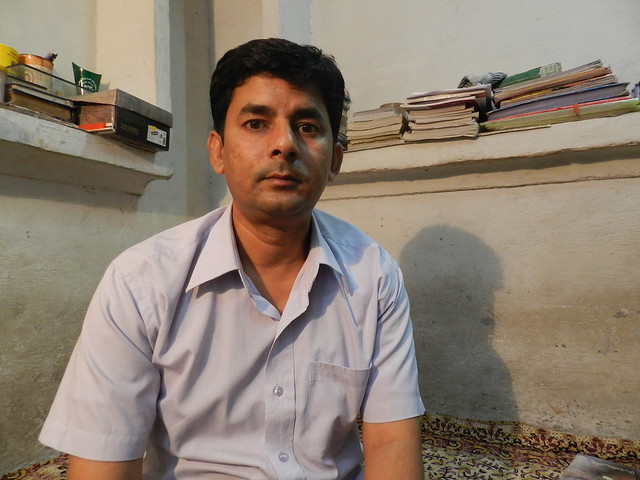A Year-long Series on Education, Sponsored by The Aligarh Forum : – A Mirror on our Efforts, our Successes & our Shortcomings ; Stories of triumphs, tribulations and struggles of the Indian Muslims in improving their educational status, in illiteracy alleviation, and in their professional and social uplift.
By Mumtaz Alam Falahi, TwoCircles.net,
His story is exceptional, not common and therefore very inspiring. A person from a poor background gets a lucrative job as an engineer in Saudi Arabia but leaves it within three years to become a civil servant in India — his childhood ambition. Md. Imtiyaz Alam comes from Darbhanga in Bihar. In his first attempt he cleared India’s premier civil services examination 2011 whose results were announced in May 2012.
“When I told my company in May 2010 about my decision to leave the job of already handsome salary, they offered hike to fulfill all my requirements. But I had made up my mind. I wanted to be a civil servant. It was my ambition since childhood but I could not pursue it after graduation from AMU as financial condition of my family was very bad,” says Alam, 32, sitting in his rented one-room flat in Jamia Nagar of New Delhi.
Alam holds degree in Mechanical Engineering as well as Business Administration from Aligarh Muslim University. After education he got a plum job in Saudi Arabia but he did not live there for long.
Why did you leave the lucrative job?
“Since childhood, my fascination was about civil services. When I was studying at Aligarh I aspired to be civil servant, but my financial conditions were not good so I decided to go for industry after completion of my education. But wherever I went I was not satisfied and I felt I have left something behind. Then two years ago I decided to concentrate on preparation for civil services, I resigned from the company in Saudi Arabia and came back to India,” says Alam.
Generally it is seen, most of the new generation of Muslims, after getting professional courses they want to go abroad to earn more money in short time. They do not prefer for civil services or any job in India. Why?
“In my case, I never wanted to go outside of the country to earn money. After education I tried my best to settle here. I wanted to be here to earn and prepare for civil services, but I was not earning as much as the family required so I decided to go abroad in 2007. However, in May 2010 I resigned from the job and came back to India for preparation of civil services.”
Education
Alam got education till matriculation at his village. He studied till Class III at BMC maktab (backward Muslim community maktab) at his village. Then he studied in government middle school and then in government high school near his village from where he did matriculation in 1995. He got admission in Dip. in Engineering at AMU, later he did Bachelor in Engineering (Mechanical) and MBA also from the same university.
After education, his family told him he will not get any support from family for civil services, and he will have to take care of younger brothers also. This situation forced him to look for job.

Md. Imtiyaz Alam
Alam did self-study for civil services. He didn’t join any coaching institute as he says “I could not afford the high fees.” He spent some days at Hamdard Study Circle and Jamia Millia Islamia for interview preparation. It is interesting that both the two institutions have claimed his success to their credit.
Shortcomings at Muslim-run coaching institutes
Ask Alam about shortcomings at Hamdard of Jamia, he would say: “They should take students as valuable assets. They should not make them feel they are doing some favor to them. They should keep them at ease. They have reached to this level after overcoming so many odds and adversities. They are special.”
Low percentage of Muslims in civil services
On the low percentage of Muslims in civil services, he says: Most of the successful Muslims are coming from cities or privileged classes. The economic backwardness and unawareness are among the reasons that many are not thinking about civil services. There is a need to make them aware that they should prepare for civil services. Their participation in prelim is very low, so how can the number of successful in the final increase? There should be more coaching and guidance centres in small towns, districts and villages.”

